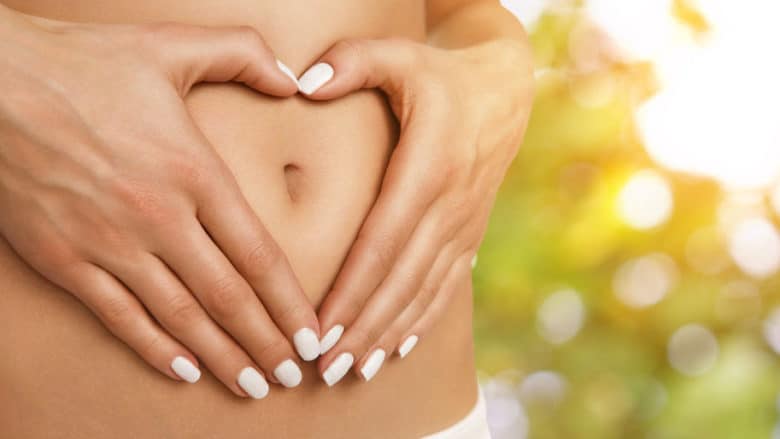
Bowel Problems bring to mind the words of Rodney Dangerfield, “I get no respect!”
Most folks don’t pay much attention to their bowels until problems occur, me included. It took a serious bout of diverticulitis to get my attention.
Good health begins in your bowels.
You need nutrients and fluids to survive. You ingest these nutrients through your digestive tract (including your bowels). Further, scientists now find bowel health vital to healthy immune function.
Bowel problems like bloating, gas, indigestion, diarrhea, and irregularity act as early warning signals. It’s far better to pay attention early on than to end up in the emergency room (as I did). It’s even better to keep your bowels healthy… to prevent bowel problems!
Use these seven facts to turn bowel problems into bowel health.
Seven Bowel Health Facts
1. Your bowels nourish you through an amazing yet simple digestion process.
Mouth. Digestion begins in the mouth. Take the time to chew your food well. By chewing it well you mix it with saliva and break it down for the next stage of digestion. From the mouth, the now semi-liquid food flows down a muscular tube, the esophagus, to your stomach.
Stomach. In the stomach, food is further broken down into teeny-weeny parts including nutrients, minerals, and vitamins through mixing with acids and digestive juices. From the stomach, these parts along with fluids, some cellulose, and fiber move on to the small intestine.
Small Intestine. The small intestine further mixes these substances with digestive juices from the liver. As a result, the nutrients become small enough to move through tiny structures in the bowel wall into your blood stream. Your blood transports these life-giving nutrients to your whole body. What’s left (undigested parts, fluids, cellulose, and fiber) moves on to the large intestine.
Large Intestine. The large intestine acts as a storage area until the material passes on through the anus. Olè…you have a bowel movement.
2. Healthy bowels thrive in partnership with over 100 trillion bacteria!
If you took a “fantastic voyage” into your bowels, you would see these “good” bacteria busy at work: fighting off harmful organisms, helping digestion, and supporting your immune system.
3. Disease can result when “good” bacteria get depleted or out of balance with potentially harmful bacteria.
“If your gut doesn’t have enough “friendly” protective bacteria… dangerous yeasts, molds, fungi, chemicals and bacteria can take over,” says Suzy Cohen, RPh in The 24 Hour Pharmacist.
Factors that contribute to the depletion of “good” bacteria include poor diet and hydration, stress, environmental toxins, illness, and lack of rest. Other culprits include antibiotics and medications like birth control pills, and hormone replacement therapy.
4. Bowel health is HUGELY important for the health of your immune system.
Your gut has more immune cells then any other area of the body. The human intestine is 10 times longer than the length of the body. The small bowel alone has ten times the surface area of the skin.
Supporting your bowels’ healthy bacterial growth helps digestion and may contribute to sustaining healthy immune function, according to reports in scientific journals like Pediatric Research and European Journal of Nutrition.
5. Your body can’t manufacture “good bacteria,” you need to supplement it with “probiotics.”
“Probiotics are live organisms that, when administered in adequate amounts, confer a health benefit to the host [person taking them],” according to The Food and Agriculture Organization of the United Nations.
Probiotics most often contain bacteria like Bifidobacterium and Lactobacillus rhamnosus that stimulate the immune system and protect against bad bacteria like Salmonella, yeasts, molds, and viruses.
6. The bacteria in probiotics are sensitive little critters.
The high heat and pressure of most manufacturing processes kill most probiotics and those that live don’t survive long on the shelf. Further, most store bought probiotics aren’t protected properly so when they reach the stomach they get vaporized by its acid. They never reach the bowels.
For example, one third of the products tested by the ConsumerLab.com’s Product Review of Probiotic Supplements contained less than one percent of the expected number of living bacteria — “with several products containing one-ten thousandth of the amount expected.”
7. When buying probiotics look for evidence of good manufacturing processes (GMP) and special procedures that assure the live bacteria make it to your bowels.
You can find evidence of GMP on the label or other material provided by the company. GMP means that there are quality control processes in place that make sure what’s on the label is actually in the bottle.
In addition, look for evidence of a protective delivery method such as encapsulation in specialized materials.
Be wary of probiotics that require refrigeration. It’s hard to guarantee that these temperatures are maintained through the whole manufacturing, delivery and storage process.
Pay special attention to the expiration date when buying too.
Summary
Start now in helping and preventing bowel problems. Give your bowels the respect they deserve. Support your digestion:
- Eat healthy foods (chew them well) and drink plenty of purified water.
- Avoid overuse of antibiotics and other medications like birth control pills and hormone replacement therapy.
- Reduce your stress with relaxation techniques and meditation.
- Make time for rest and adequate sleep.
- Find ways to reduce exposure to environmental toxins.
- See your health provider for serious problems like blood in your stools or pain.
Last, but not least, try probiotics to help bowel problems (or prevent them). Provide your bowels and your immune system with the partners they need for health…. “Good Bacteria.” Stay healthy the natural way.
Resources
Consumerlab.com at http://www.consumerlab.com/news/Probiotic_Lactobacillus_Acidophilus_Bifidobacterium_Supplements_Tests/1_21_2003.
Life Extension at http://search.lef.org/cgi-src-bin/MsmGo.exe?grab_id=0&page;_id=808&query;=probiotics&hiword;=PROBIOTIC%20probiotics.
National Disease Information Clearing House http://digestive.niddk.nih.gov/ddiseases/pubs/yrdd.
USANA Health Sciences at http://nancymoore.usana.com.
